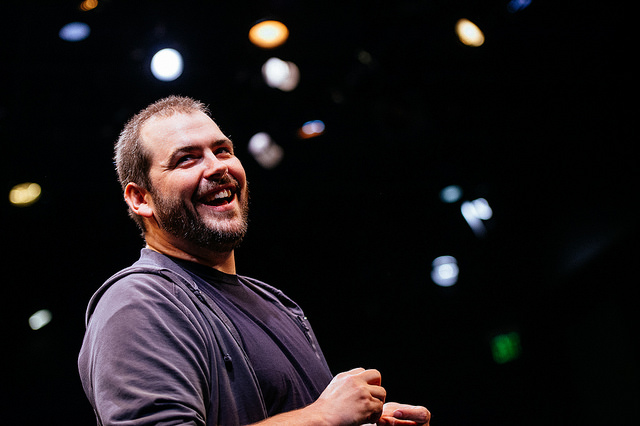 “Look with new eyes,” I tell the writers I coach. “See through the eyes of Dream Kid. Then write about what you see.”
“Look with new eyes,” I tell the writers I coach. “See through the eyes of Dream Kid. Then write about what you see.”
Dream Kid is that hope-filled inner dreamer, blissfully engaged in any given moment. She is taken with wonder and notices the intricate, quirky details of everything. As adults, however, we are rushed, challenged, stressed, and injured by the grown-up problems in our lives, and we seldom take time to hang out with these micro-joys. As responsible, critical-thinking people, we lose the tiny miracles that make up a life.
The play, Every Brilliant Thing, takes us by the hand and brings us back. We follow a charming, deep-feeling, curious, caring, seven-year-old who finds a way out of painful adult-induced problems—by concocting a list of all the brilliant things in life. He hopes to convince his suicidal mom that life is worth living. With each addition to the list, he cultivates this magical quality of seeing.
It’s a difficult quality to describe, this way of being absorbed in the minute and wondrous. And so it kind of boils down to things. A kitten, a newborn, a sunset . . .
Wait, this kid’s list is much better:
A ham and mayo sandwich without the ham
The word ‘plimpf’
Water fights
Gatefold sleeves
How long can this list get? What will it take to keep growing the list when the hopeful child becomes a troubled adult?
Isaac Lamb, who performs Every Brilliant Thing at Portland Center Stage, is warm, disarming, convincing as both a kid and the grown-up he becomes. I can’t imagine anyone else in this role; he invites audience participation in such a genuine way.

There’s a moment when he launches into a bongo-drum induced dance, so uninhibited and goofy that you can’t help grinning for joy. He runs offstage with a quick, “Talk amongst yourselves!” grabs a breather and swig of water, then rushes back without skipping a beat: “What’d you talk about?”
Spontaneity is present whenever we look with new eyes. It invites concrete, interesting noticings. It reminds us to live in the moment, which is the only way we get through the really hard stuff.
Hard stuff like family problems, suicide, depression.
“That the list could combat hardwired depression was incredibly naïve,” the performer tells us. And yet, it offers a gateway to wonder. We can examine the most difficult things along with the most brilliant, seeing the wonder when we take them apart, moment by moment.
It’s what we do when we tell our stories.
It’s what writers do. And all of us who are keeping our Dream Kid alive.


